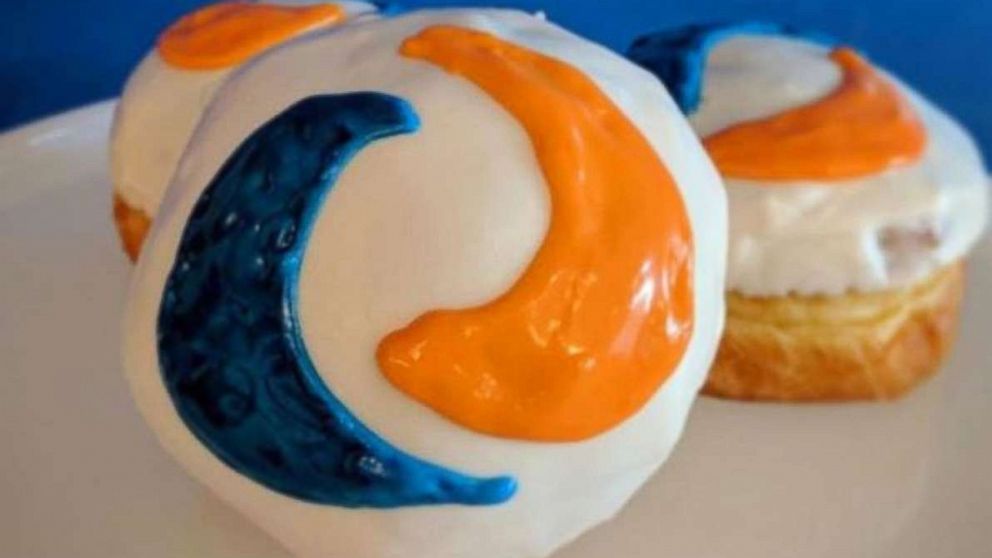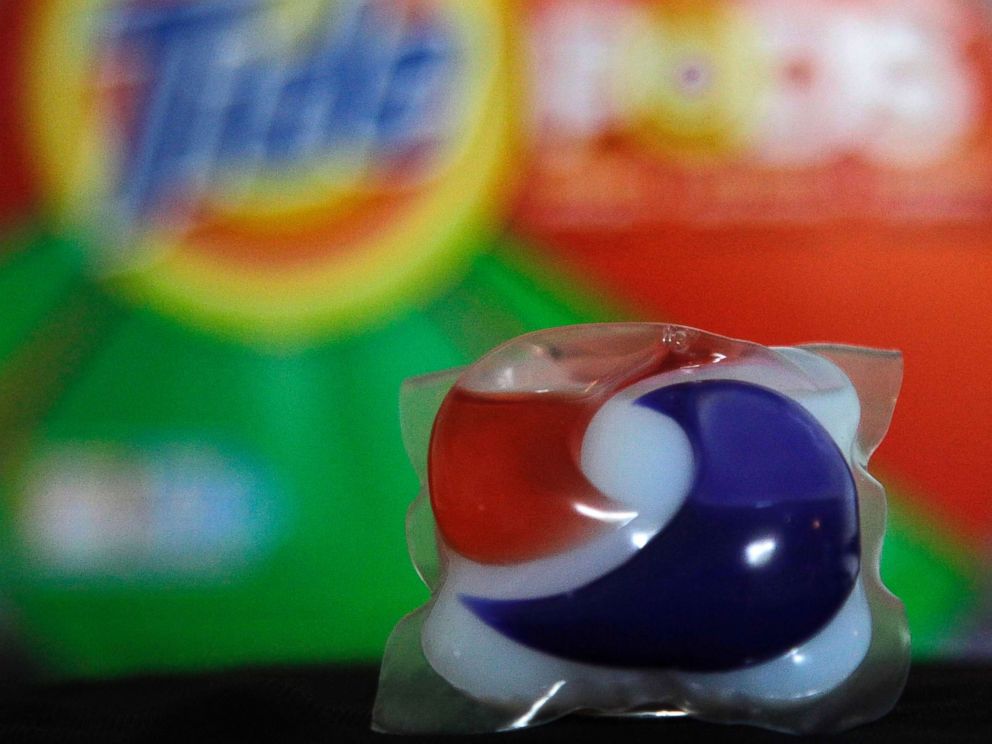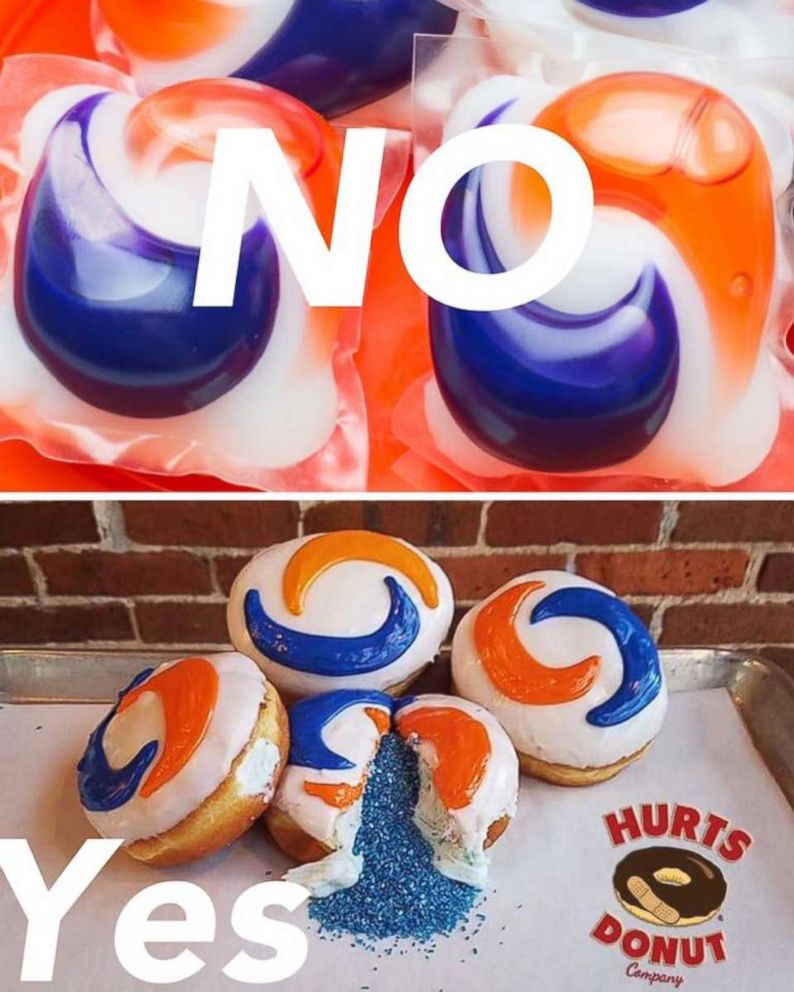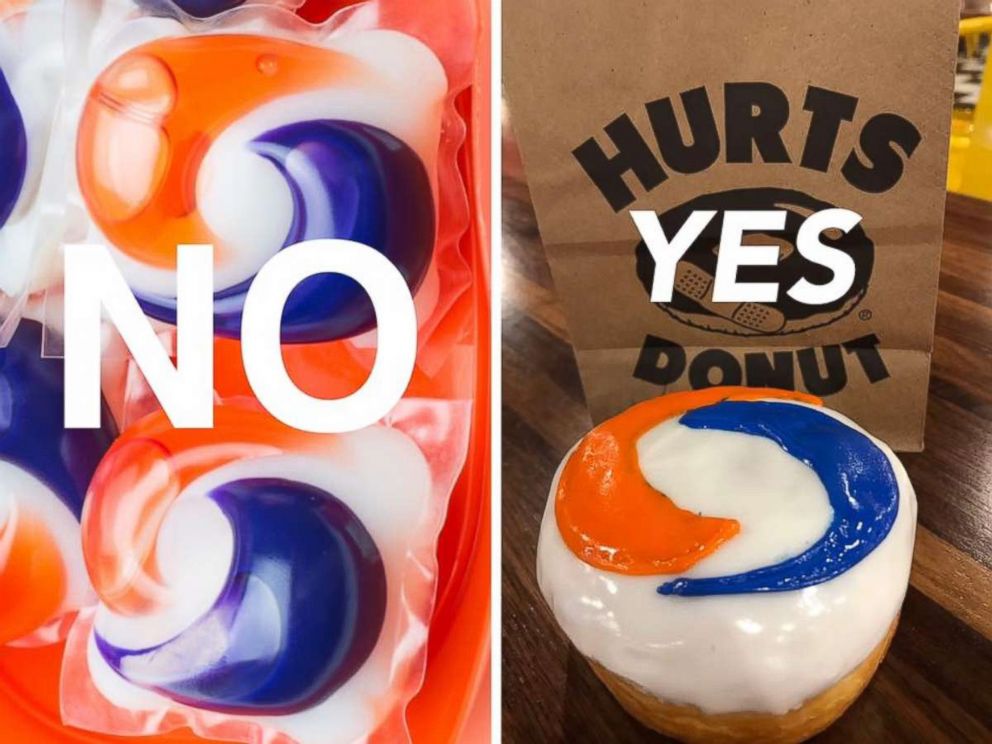'Tide Pod challenge' spawns culinary trend: Tasty (and safe-to-eat) 'Tide Pod' donuts
The social media-inspired trend has led to lookalike donuts.

— -- The dangerous "Tide Pod challenge" has inspired a culinary trend: Tide pod donuts.
The "Tide Pod challenge" is a social media-fueled trend, which involves typically teenagers eating the single-load laundry detergent packet. The detergent is not for human consumption.

Inspired by the alarming trend, Wake N Bake Donuts in Carolina Beach, N.C., and the Missouri-based chain Hurts Donut, have introduced "Tide Pod donuts." The deep-fried pastries are topped with the detergent packet's iconic orange and blue swirl made from a sugary creme -- not a poisonous detergent.
"One of our Millennial employees (Caitlin) decided to take a moment to teach they youth the difference between what to eat and what not to eat," Wake N Bake Donuts wrote on its Instagram page, along with a photo of the edible treat. "This is a Donut....you can eat this! Tide is for laundry silly. Available at our Carolina Beach location today! #donutsarebetterthandetergent #wakenbakedonuts #carolinabeach #northcarolina #bestdonuts #saynototidepods."
Danny Tangredi, owner of Wake N Bake Donuts, told WECT in Wilmington, N.C., "I definitely didn't think we would make a Tide Pod donut. But I also didn't think people would eat Tide pods."
And Caitlin Gschwind, the employee who created the donut, told the TV station, "I thought in a fun, joking way that we could tell people they shouldn't be eating Tide pods."

A Hurts Donut location in Springfield, Missouri, posted a photo to Facebook of its take on the Tide Pod donut next to a photo of the detergent packet. "YES" was slapped over the photo of the donut, while "NO" was slapped across the photo of the detergent pods.
"I thought this might clear up any confusion there might have been but now adults are throwing donuts in the washer," the photo was captioned.
Another photo was captioned, "Stop eating laundry detergent! Laundry Detergent = Not Food. Donuts = Food. We will even fill them for you. With FOOD. Not laundry detergent. In the case at both locations today and tomorrow."

Trista Patterson, owner of Hurts Donut, told Wichita, Kansas, TV station KSNW, "We just kind of put out the post as just a funny alternative to a more serious topic. We see so much heavy stuff everyday that we're just putting a little lighter approach on a serious subject."
The American Association of Poison Control Centers warned of a spike in teenagers eating the laundry product, which it says can cause seizures, respiratory arrest and even death. Poison control centers said that they handled 39 cases of intentional misuse among 13 to 19 year olds in the first 15 days of the year, compared to about 50 for all of last year.
Proctor & Gamble, the parent company of Tide, has been getting the message out there that the "Tide Pod challenge" is dangerous. It also said it is working with social media companies to stop the spread of videos featuring the "challenge."
"Ensuring the safety of the people who use our products is fundamental to everything we do at P&G," the company's chief executive, David Taylor wrote in a company blog post earlier this week. "However, even the most stringent standards and protocols, labels and warnings can’t prevent intentional abuse fueled by poor judgment and the desire for popularity."



